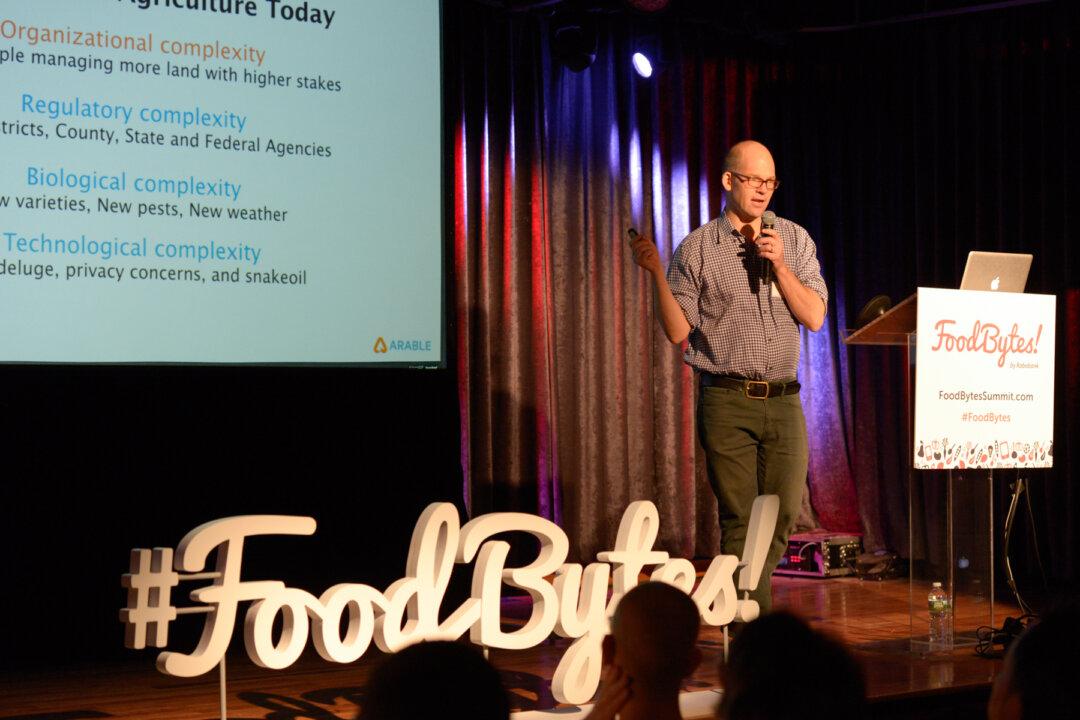Foodbytes! Brooklyn on March 3 was a pitch fest of innovative food and agriculture companies—spot on with consumer trends—and united by a concern to better our planet and our health.
The ten chosen presenters stood out from among hundreds of applications the event organizers received, so their quality was high. The people in the room included over 250 investors, consultants, and food entrepreneurs.
Presenting partners were leading food and agribusiness bank Rabobank, San Francisco’s longest-running monthly technology networking meetup SF New Tech, Food+Tech Connect, a media platform for innovative food companies, and Boulder Food Group, a venture capital firm that works with early stage food and beverage companies.

MP Taverna in Williamsburg, Brooklyn was host to FoodBytes! Brooklyn on March 3, 2016. (John McCartney/Courtesy of FoodBytes!






